
JNCI Cancer Spectrum
Scope & Guideline
Empowering researchers with cutting-edge findings.
Introduction
Aims and Scopes
- Epidemiology and Cancer Outcomes:
The journal covers studies examining patterns, causes, and effects of cancer, focusing on both individual and population-level outcomes. - Social Determinants of Health:
A significant focus is on how socioeconomic factors, racial and ethnic disparities, and community characteristics influence cancer outcomes and healthcare access. - Clinical Trials and Treatment Efficacy:
Research on clinical trials, treatment methodologies, and their effectiveness is a core area, with emphasis on innovative therapies and patient-centered outcomes. - Health Policy and Access to Care:
The journal addresses the impact of health policies on cancer care, treatment disparities, and the accessibility of services for diverse populations. - Patient Engagement and Supportive Care:
Research on supportive care strategies, mental health, and quality of life for cancer patients and survivors is highlighted, reflecting the holistic approach to cancer care.
Trending and Emerging
- Health Equity and Disparities:
A marked increase in studies addressing health disparities, particularly among racial and ethnic minorities, highlights the journal's commitment to promoting equity in cancer care. - Integration of Technology in Cancer Care:
Research exploring the use of telehealth, digital health tools, and artificial intelligence in cancer management is rapidly growing, reflecting advancements in technology and patient engagement. - Patient-Reported Outcomes and Quality of Life:
There is a growing emphasis on incorporating patient-reported outcomes in research to better understand the impact of cancer and its treatment on patients' quality of life. - Interdisciplinary Approaches to Cancer Research:
Emerging themes include interdisciplinary collaborations that integrate insights from public health, psychology, and social sciences to enhance cancer research and care. - Mental Health and Cancer Survivorship:
An increasing focus on the mental health implications for cancer patients and survivors indicates a broader understanding of the holistic aspects of cancer care.
Declining or Waning
- Traditional Risk Factors:
Research focusing solely on traditional risk factors for cancer, such as smoking and diet, appears to be declining as newer methodologies and holistic approaches gain traction. - Single Disease Focus Studies:
Studies concentrating exclusively on individual cancer types without considering comorbidities or broader health contexts are becoming less common, indicating a shift towards more integrative research. - Static Models of Care:
Research that relies on static models of cancer care delivery is waning, as there is a growing emphasis on adaptive, patient-centered approaches that consider the dynamic nature of patient needs.
Similar Journals
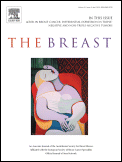
BREAST
Fostering collaboration for improved patient outcomes.BREAST is a leading peer-reviewed journal dedicated to advancing knowledge and practice in the fields of cancer research, oncology, and surgery, published by Churchill Livingstone. With an impressive impact factor and a prestigious Q1 ranking in multiple categories including Cancer Research, Medicine, and Surgery, the journal consistently delivers high-quality content that informs and inspires researchers, clinicians, and educators. Since its transition to Open Access in 2020, BREAST has significantly expanded its reach, providing immediate and unrestricted access to pivotal studies and findings in breast health and disease management. With a history dating back to 1992 and converging to 2024, the journal serves as an essential resource for the latest developments and innovative approaches in the clinical and biomedical aspects of breast care. Scholars and professionals alike can explore a wealth of research aimed at improving patient outcomes and fostering scientific dialogue in this vital area of healthcare.

Cancer Control
Advancing knowledge in cancer prevention and treatment.Cancer Control is a prominent open-access journal published by SAGE Publications Inc, dedicated to advancing the field of oncology, hematology, and general medicine since its inception in 1995. With a focus on disseminating high-quality research, the journal contributes significantly to the knowledge base surrounding cancer prevention, treatment, and survivorship, making it a vital resource for researchers, healthcare professionals, and students alike. The journal currently holds a commendable position in the academic landscape, ranking in the Q2 category for both Hematology and Oncology, highlighting its impact and scholarly relevance. Available in an open-access format since 2018, Cancer Control ensures that critical findings are accessible to a broad audience, promoting collaboration and innovation in cancer-related research. Whether you're interested in the latest clinical trials, epidemiological studies, or public health initiatives, this journal serves as a key platform for sharing significant developments in cancer care and control.
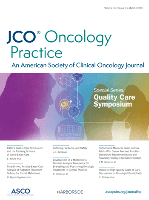
JCO Oncology Practice
Enhancing Patient Outcomes with Groundbreaking Oncology InsightsJCO Oncology Practice is a premier peer-reviewed journal published by Lippincott Williams & Wilkins, specializing in the intersection of oncology and health policy. Established as a vital resource since 2020, this journal serves as a platform for the dissemination of innovative research, policy analysis, and clinical practice advancements aimed at enhancing cancer care. With its impressive impact factor and recognition in the top quartile (Q1) across multiple categories including Health Policy and Oncology, JCO Oncology Practice ranks #3 in Oncology Nursing and consistently shares cutting-edge insights that drive improvements within the field. The journal is accessible to a broad audience through its open access options, ensuring that vital knowledge reaches practitioners, researchers, and students alike. By prioritizing the latest evidence-based practices and addressing contemporary challenges in cancer treatment, JCO Oncology Practice plays an essential role in shaping the future of oncology practice and policy in the United States and beyond.

Journal of Racial and Ethnic Health Disparities
Exploring Solutions for Health InequitiesJournal of Racial and Ethnic Health Disparities is a prestigious academic journal published by SPRINGER INTERNATIONAL PUBLISHING AG, dedicated to advancing the understanding of health disparities among racial and ethnic groups. With an exemplary impact across multiple disciplines, the journal is categorized in the Q1 quartile across fields such as Anthropology, Health Policy, and Public Health, indicating its significant contribution to these areas. Since its inception in 2014, the journal has become a key resource for researchers, practitioners, and policymakers, fostering critical discussions and innovative research aimed at addressing the inequalities in health and healthcare access experienced by diverse populations. Although it does not offer open access, the journal ensures high-quality peer-reviewed content that serves as a vital reference within the academic community. Readers can explore in-depth analyses and evidence-based perspectives that not only highlight urgent health issues but also propose solutions that can lead to equitable health outcomes for all.
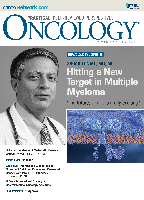
ONCOLOGY-NEW YORK
Delivering the Latest Breakthroughs in Cancer Science.ONCOLOGY-NEW YORK is a prominent journal dedicated to the field of oncology, published by UBM MEDICA. Since its inception in 1987, the journal has served as a pivotal platform for disseminating groundbreaking research and advancements in cancer treatment, research, and education. With an ISSN of 0890-9091 and an E-ISSN of 2767-7389, it stands as an accessible resource for professionals, researchers, and students alike. The journal currently holds impressive rankings, categorized within Q3 in Oncology and Q4 in Cancer Research for 2023, reflecting its commitment to high-quality research output and contributions to the field. Despite its challenges in Scopus rankings, positioned at #283/404 in Medicine: Oncology and #188/230 in Biochemistry, Genetics, and Molecular Biology: Cancer Research, ONCOLOGY-NEW YORK continues to primarily focus on innovative cancer therapies and emerging clinical research. The journal's ongoing dedication to enhancing knowledge and understanding in oncology makes it a vital resource for all stakeholders invested in combating cancer.
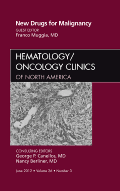
HEMATOLOGY-ONCOLOGY CLINICS OF NORTH AMERICA
Transforming Hematology and Oncology Through ScholarshipHEMATOLOGY-ONCOLOGY CLINICS OF NORTH AMERICA, published by W B SAUNDERS CO-ELSEVIER INC, is a premier journal dedicated to advancing the fields of hematology and oncology. With its ISSN 0889-8588 and E-ISSN 1558-1977, this esteemed publication has been a cornerstone of clinical scholarship since its inception in 1987, providing comprehensive annual updates that bridge the gap between research and clinical practice. Known for its rigorous editorial standards and impactful contributions, the journal holds a respectable Q2 quartile classification in both hematology and oncology as of 2023, ranking it in the 50th percentile among its peers. Although it is not an open-access journal, the content is accessible to institutions and professionals worldwide. As the scope of the journal expands through 2024, it continues to attract an audience of researchers, healthcare professionals, and students who seek to stay informed on the latest advancements, treatment modalities, and groundbreaking studies in the fields of hematology and oncology.
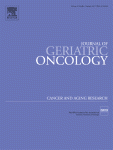
Journal of Geriatric Oncology
Fostering innovation in the care of older cancer patients.Journal of Geriatric Oncology, published by Elsevier, stands at the intersection of geriatric medicine and oncology, addressing the unique needs and challenges of cancer management in older adults. Since its inception in 2010, this esteemed journal has played a pivotal role in advancing research and clinical practices, aiming to improve the quality of life and treatment outcomes for elderly cancer patients. With its impressive categorization in the 2023 Q2 quartile for both Geriatrics and Gerontology and Oncology, the journal demonstrates a noteworthy impact within its fields, ranking #153 out of 404 in Medicine – Oncology and #45 out of 116 in Medicine – Geriatrics and Gerontology. Researchers and healthcare professionals are encouraged to access critical insights through its rigorous peer-reviewed articles, which offer cutting-edge research findings and clinical applications. As the field continues to evolve, the Journal of Geriatric Oncology remains a vital resource for those dedicated to fostering innovation in geriatric oncology.

International Journal of Clinical Oncology
Empowering Oncology Research for TomorrowInternational Journal of Clinical Oncology, published by SPRINGER JAPAN KK, is a leading peer-reviewed journal dedicated to advancing research and clinical practices in the fields of oncology, hematology, and surgery. With its impact factor reflecting its significance and reach in the academic community, this journal serves as a solid platform for researchers, professionals, and students to share and disseminate groundbreaking discoveries and methodologies. Notably, it has secured prestigious rankings in the Q1 category in Medicine (miscellaneous) and Surgery, and Q2 in Hematology and Oncology, illustrating its prominent position in the medical literature. The journal's comprehensive scope addresses pivotal clinical issues from 1996 through 2024, further solidifying its relevance in the ever-evolving landscape of cancer research. Despite not offering open access, the depth and quality of research articles ensure that vital information remains accessible to those committed to improving clinical outcomes in oncology. With a focus on innovative treatments and patient care, the International Journal of Clinical Oncology embodies a commitment to fostering excellence in medical research.

Cancer Medicine
Advancing cancer care through innovative research.Cancer Medicine is a leading open access journal published by WILEY, focusing on innovative research and advancements in the fields of Cancer Research, Oncology, and Radiology, with an impressive impact evidenced by its 2023 Q2 ranking in Cancer Research and Q1 rankings in both Oncology and Radiology, Nuclear Medicine and Imaging. With an ISSN of 2045-7634, this journal has been committed to disseminating pivotal findings since its inception in 2012, serving as a vital platform for researchers, practitioners, and students alike. The journal proudly embodies the spirit of open access, ensuring that groundbreaking cancer research is accessible to a global audience. Located in the United Kingdom, it spans a wide array of topics, promising comprehensive insights into cancer therapies, molecular mechanisms, and imaging techniques, thereby significantly contributing to the enhancement of cancer care and treatment outcomes. Researchers interested in exploring the latest advancements in cancer medicine will find this journal an indispensable resource.

CANCER
Transforming knowledge into healing in the fight against cancer.CANCER, published by Wiley, stands as a pivotal journal in the field of oncology and cancer research, boasting an impressive impact factor and consistently dynamic growth since its inception in 1948. With an ISSN of 0008-543X and an E-ISSN of 1097-0142, this esteemed journal is recognized for its rigorous peer-reviewed articles, making significant contributions to the understanding of cancer biology, treatment modalities, and clinical practices. CANCER holds a distinguished position in the academic community, securing its placement in the Q1 category for both cancer research and oncology, and ranks within the top percentiles on Scopus, indicating its high impact and relevance. The journal is particularly beneficial for researchers, professionals, and students seeking to stay abreast of the latest advancements in cancer science. By addressing essential research questions and providing pathways for new therapies, CANCER continues to play a crucial role in shaping the future of oncology and improving patient outcomes.